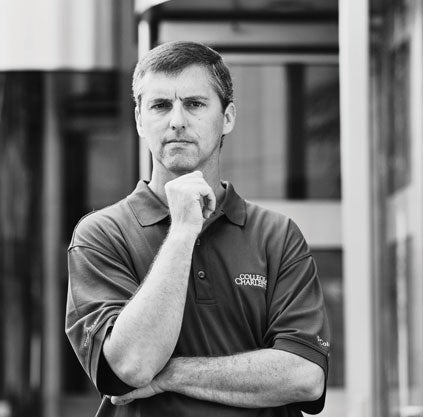 He doesn’t wear a cape. He doesn’t have a superpower. He doesn’t have some kind of time machine or crystal ball. What James Hodge ’89 does have, however, is the capacity to help save and improve millions of lives around the globe.
He doesn’t wear a cape. He doesn’t have a superpower. He doesn’t have some kind of time machine or crystal ball. What James Hodge ’89 does have, however, is the capacity to help save and improve millions of lives around the globe.
As a public health lawyer and a national expert on emergency legal preparedness and ethics, vaccine laws and policies and other legal areas, Hodge has the connections that are needed to make grand, sweeping changes affecting not just medical and legal policy, but entire communities.
“I’ve been fortunate to build some extremely strong relationships – and to work collaboratively with others to achieve some great improvements in public health,” says Hodge, who studied business administration and philosophy at the Honors College before earning his J.D. and his LL.M. and, later, teaching at Johns Hopkins Bloomberg School of Public Health.
Now a professor with and director of the Public Health Law and Policy Program at Arizona State University’s Sandra Day O’Connor College of Law, Hodge has taught public law and ethics classes globally – and last summer came back to his alma mater to teach at the Honors College.
“It was a neat class,” says Hodge. “We tackled some very difficult and controversial issues.”
One of which, of course, was the shooting at Emanuel A.M.E. Church, which took place while Hodge was in Charleston teaching the course.
“It was really eye opening to look at the issue of gun control from a state and local legal basis, based on such a horrific event,” he says. “Public health laws related to gun violence prevention can protect us from some acts, but government is limited at times in what it can do to prevent some crimes.”
What the government can do to protect the public is what Hodge is most focused on.
“You can theorize about these issues, you can write about them, you can lecture nationally – and I’ve done all that,” he says. “But, at the end of the day, players in this field step into the environment to make change through law. That’s what gets me up in the morning. When society responds through the introduction or enforcement of laws that are grounded in good science and known efficacy, my job is done.”
From tobacco to trans fats, Hodge uses his expertise and relationships to help align public health laws with science and policy.
“If we hit the right marks through law,” he explains, “we can save lives, add value to lives and prevent injuries and deaths.”
The public health strategies are always changing, of course. Take, for example, legal responses to last year’s Ebola scare.
“Ebola gave us an opportunity for huge change – and revealed the renaissance in the field of public health law,” says Hodge. “For decades, the common reaction in the medical and public health fields before was, ‘Don’t talk about the law’; now it’s, ‘Tell us how we can use law to accomplish our objectives.’ Law has become a primary option for public health improvements – that is monumental.”
The next big improvement that Hodge hopes to make is in global obesity prevention.
“We’re at the crisis point globally where we have to get serious about the public health implications of obesity across populations. These public health problems are solvable from the legal side,” he says, “but not without some major battles ahead, especially within the food industry. We’ve got to find common ground and solidify legal and policy approaches to the benefit of the public’s health. It’s a transnational, global issue.”
Indeed, millions of lives are at stake – lives that Hodge might just have the ability to save. And that, without question, really is a superpower.
– Alicia Lutz ’98




